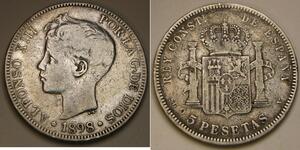(sold for $112.0)
1692, Brunswick-Luneburg-Calenberg, Ernest Augustus. Silver 2/3 Thaler Coin. VF+
Mint Year: 1692 Ruler: Rudolph Augustus Denomination: 2/3 Thaler Reference: Davenport 408, Welter 1974, KM-262.1. Condition: Minor scratches in fields and light edge-digs, otherwise a nice VF+/aXF! Weight: 13,05gm Diameter: 36mm Material: Silver
Obverse: Standing half-naked wildman (or woodwose) facing, holding a tree to his right. Fractional thaler value (2/3) in oval frame below. Legend: OLA BONA QUAE HONESTA ("Only those things are good which are honorable!") . FEIN (2/3) SILB :
Reverse: Crowned composite coat-of-arms of Brunswick-Luneburg-Calenberg with crossed sword and crozier in background. Date (16-92) and stars at sides. Legend: ERNEST : AUG : D : G : EPISC : OSN : DUX BR : & LU :
The wild man or woodwose is a mythological figure that appears in the artwork and literature of medieval Europe. Images of wild men appear in the carved and painted roof bosses where intersecting ogee vaults meet in the Canterbury Cathedral, in positions where one is also likely to encounter the vegetal Green Man. The wild man, pilosus or "hairy all over," and often armed with a club, was a link between civilized humans and the dangerous elf-like spirits of natural woodland, such as Puck. The image of the wild man survived to appear as supporter for heraldic coats-of-arms, especially in Germany, well into the 16th century. Early engravers in Germany and Italy were particularly fond of wild men, wild women, and wild families, with examples from Martin Schongauer and Albrecht Dürer among others.
The earliest medieval concepts of the wild man focus on him as a normal human gone wild by madness, as in the Biblical story of Nebuchadnezzar; this first occurs in Celtic societies in the High Middle Ages. These Celtic stories attribute to the wild man poetic or prophetic powers. The 9th-century Irish tale Buile Shuibhne (The Madness of Sweeney) describes how Sweeney, the pagan king of the Dál nAraidi in Ulster, assaults the Christian bishop Ronan Finn and is cursed with madness as a result. He spends many years traveling naked through the woods, where he composes verse. The Welsh told a similar story about Myrddin Wyllt, the origin of the Merlin of later romance. In these stories Myrddin is a warrior in the service of King Gwenddoleu ap Ceidio at the time of the Battle of Arfderydd. When his lord is killed at the battle, Myrddin takes to the Caledonian Forest in a fit of madness which bestows him with the ability to compose prophetic poetry; a number of later prophetic poems are attributed to him. The Life of Saint Kentigern includes almost the same story, though here the madman of Arfderydd is instead called Lailoken, which may be the original name. The fragmentary 16th-century Breton text An Dialog Etre Arzur Roe D'an Bretounet Ha Guynglaff (Dialog Between Arthur and Guynglaff) tells of a meeting between King Arthur and the wild man Guynglaff, who predicts events which will occur down to the 16th century.
em>.
Ernest Augustus (German: Ernst August; Latin: Ernestus Augustus; 20 November 1629 – 23 January 1698) was duke of Brunswick-Lüneburg and ruled over the Principality of Calenberg (with its capital Hanover) subdivision of the duchy. He was appointed prince-elector, but died before the appointment became effective. He was also Administrator of the Prince-Bishopric of Osnabrück.
Ernest Augustus was born at Herzberg am Harz, the son of George, Duke of Brunswick-Lüneburg and Anne Eleonore of Hesse-Darmstadt (Ernest Augustus was descended from the Albertinian line of the Habsburg family and also the House of Hohenzollern). In 1658 he married Sophia of the Palatinate in Heidelberg. As the fourth son, he had little chance of succeeding his father as ruler, and so, in 1662, his relatives appointed him administrator of Osnabrück; according to the Peace of Westphalia, every second incumbent of the Osnabrück see was to be appointed by the dukes of Brunswick-Lüneburg. However, after two of his elder brothers had died without sons, Ernest Augustus inherited part of his father's territories in 1679, namely Calenberg (including Göttingen).
In 1683, against the protestations of his five younger sons, Ernest Augustus instituted primogeniture, so that his territory would not be further subdivided after his death, and also as a pre-condition for obtaining the coveted electorship. He participated in the Great Turkish War on the side of Leopold I, Holy Roman Emperor. In 1692 he was appointed prince-elector by the Emperor; however, the electorship did not come into effect until 1708. Ernest Augustus died in 1698 at Herrenhausen; he was succeeded as duke by his eldest son George I Louis, who would later also become king of Great Britain.

|
Posted by:
anonymous 2019-01-17 |
5 Peseta Kingdom of Spain (1874 - 1931) Silver
group has 46 coins / 42 prices
⇑
27 coins were uploaded from 2025-05-28 to 2025-06-04
One of them is:

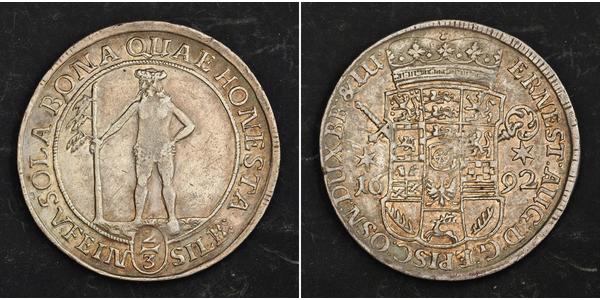




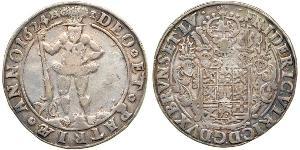
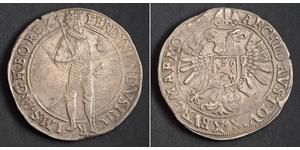


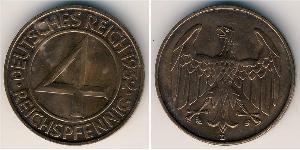




-300-150-0_0KbzbiCikAAAFL8oijltio.jpg)
